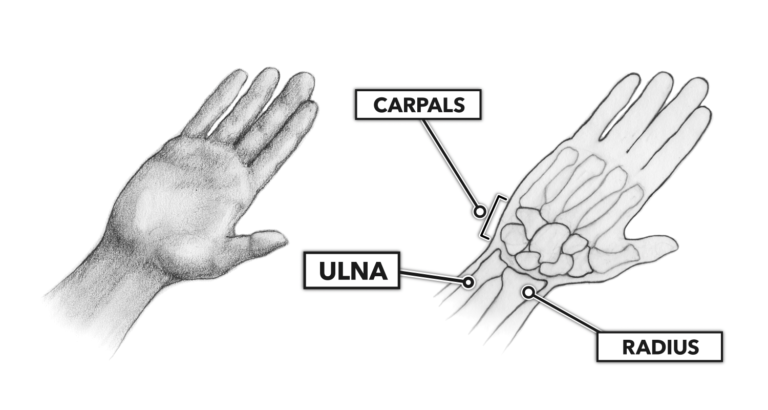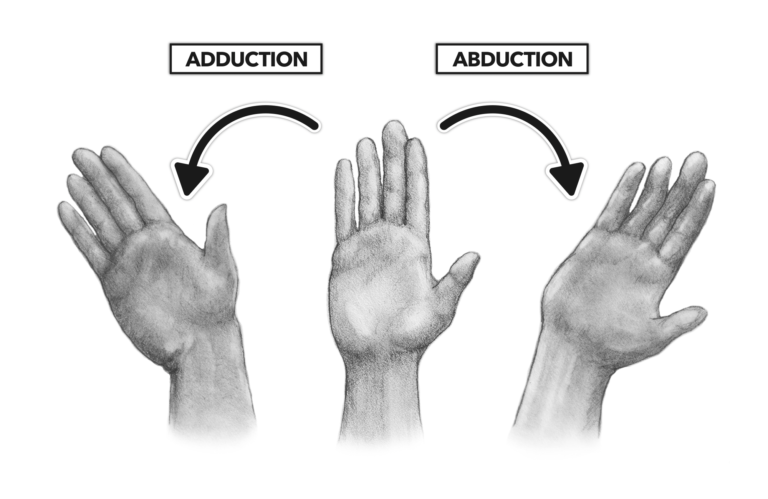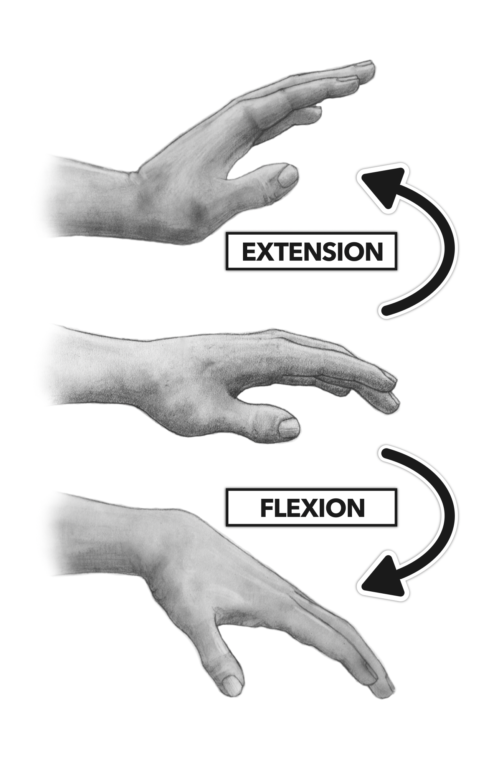The joints and muscles of the wrist are not as simple as those seen in the shoulder and elbow, where only three bones articulate. At the wrist, there are several distinct articulations between the radius, ulna, and the carpals, a group of eight bones collectively termed the carpus (Figure 1). Together, these articulations enable flexion, extension, abduction, and adduction.
Adduction is the movement of the entire hand toward the little finger (i.e., the pinky or fifth digit). Abduction is the movement of the entire hand toward the thumb (i.e., the first digit) (Figure 2). While these descriptions are true in any body position, they are the most evident if we are standing in the anatomical position with palms facing forward and thumbs out to the side. Adduction and abduction of the wrist have alternative names that may be used: ulnar deviation (adduction) and radial deviation (abduction).
Flexion of the wrist from anatomical position bends the hand forward and up. In other arm orientations, it can be thought of as “curling” the hand so the palm faces the body. Extension of the wrist from anatomical position bends the hand backward and up (Figure 3).
It is a common error to see rotation (pronation and supination) included as a function of the wrist joint, but, as noted previously in Part 2: The Elbow, this movement is actually a function of the radioulnar joint at the elbow.
Additional Reading
- Movement About Joints, Part 1: The Shoulder
- Movement About Joints, Part 2: The Elbow
- Movement About Joints, Part 4: The Hand and Fingers
- Movement About Joints, Part 5: The Hip
- Movement About Joints, Part 6: The Knee
- Movement About Joints, Part 7: The Ankle
- Movement About Joints, Part 8: The Vertebral Column
Comments on Movement About Joints, Part 3: The Wrist
Thanks. I just realized I have a lot more Adduction then Abduction in my wrist. It seams to we worst if I position myself in supination rather then pronation.



Movement About Joints, Part 3: The Wrist
1